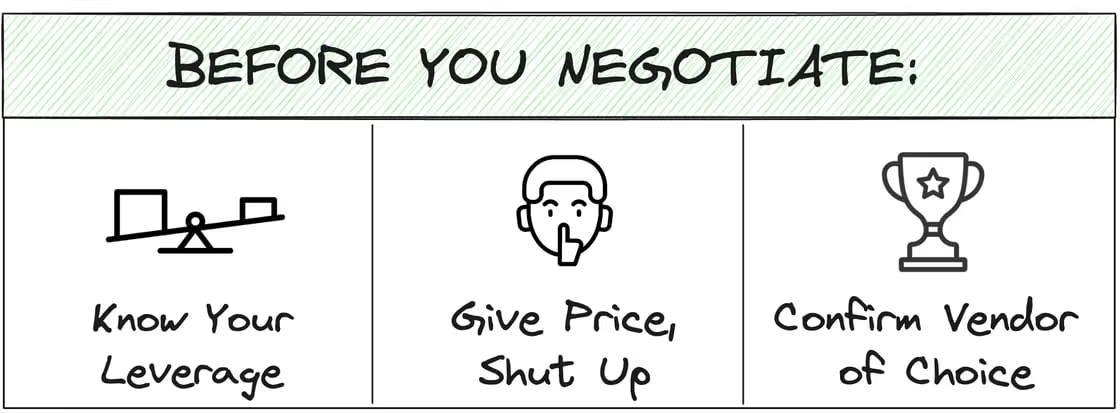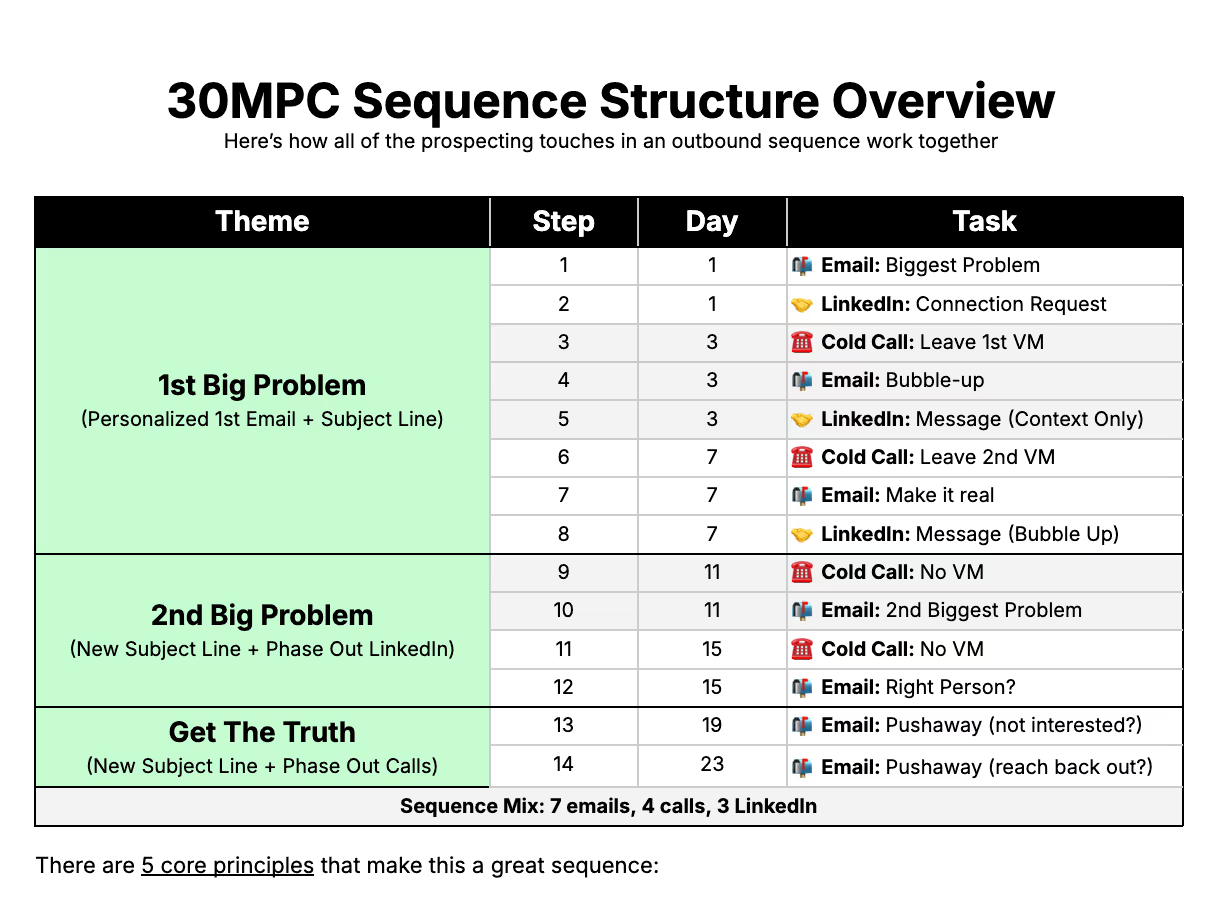
Many negotiations devolve into discounts you didn't need to give, slipped deals, and imploded deals from an ugly battle with finance.
You can win the negotiation on logic but lose on emotion. You might know you should be vendor of choice, but still lose because they didn't feel like they got a deal.
Negotiation is a massively complex topic, so we're covering it in two parts: Part 1 will cover How To Win A Negotiation Before It Starts and Part 2 will cover How To Finish Negotiations In One Cut.
For Part 1, there are 3 steps to win a negotiation before it starts:
- Know your leverage with the 3 why's
- Give price then shut up
- Win vendor of choice independent of price
Let's tussle.
Step 1: Know your leverage with the 3 why's
Your leverage in a negotiation is largely dependent on your prospect's alternative options:
- Stick to the status quo (aka: the problem's not that bad)
- Go to a competitor (aka: there's a cheaper, comparable alternative)
- Delay the decision entirely (aka: they want to buy you, but have to now)
"The 3 Whys" help you understand your leverage in a negotiation by assessing each of those risks inside of your deal:
- Why anything? How big is the problem they're hoping to solve?
- Why you? Is there a cheaper, but worse competitor? Is there a better option?
- Why you now? Do they need to solve this problem today?
Example: If they need to solve the problem, you're the only one who can solve it, and they need to solve it now... you have a lot of leverage and don't need to discount.
But if your prospect has a 50% discount from a true apples-to-apples competitor and doesn't have to move today... you're probably not closing that deal at list price.
This tells you if you should take their asks seriously later in the negotiation. If they're pushing for a discount but don't have a real alternative... don't discount.
Step 2: Give price then shut up
It's a horrible mistake to explain how pricing works after you give the price itself:
- You seem insecure: It comes off like you felt the need to defend and justify the number right after you gave it.
- You miss their reaction: Your blabbering gave them time to hide their reaction.
- They get sticker shock: If you don't explain those factors first, they're far more likely to get sticker shock because there are so many unanswered questions as to why your price is as high as it was.
Instead, answer the questions in their mind around price in chronological order:
- Explain why they're buying at all Recap the problems they wanted solve, how you'll solve it, and the implementation they should expect if they become a customer.
- Explain how pricing works: Everything from the products included, to the number of seats, to the term of the agreement.
- Give the price and SHUT UP: Don't say a word after giving the number. Let them react. The person who speaks first loses.
Watch their reaction very closely. A less sophisticated buyer might reveal "that's not as bad as I thought" and now you know you've got it in the bag.
But most savvy buyers will be ready to tell you it's too expensive, no matter how good the deal was. But don't take the bait: we're still not ready to negotiate.
Step 3: Win Vendor of Choice Independent of Price
There's no point in negotiating if they don't want to buy from you in the first place. Otherwise, they're just using you as leverage in their negotiations with your competitor.
But if you can get them to agree that you're the vendor of choice first, you set the precedent that you're not going to price match because you're the better product.
Here's how you do that in practice.
- Act confused when they balk at price: Make it seem like they're the weird ones for thinking your price is high because every other customer has paid it. (You know, this doesn't happen super often. We're never the cheapest, but we're never completely unreasonable. I guess, what'd you have in mind?)
- Push them away... into the alternatives. Use Chris Voss labels (Sounds like you don't feel like we're bringing enough value.) or Charles Muhlbauer Humbling Disclaimers (I recognize this is awkward question. But if they do everything we do at the same price... why wouldn't you go with them?)
When you do these two things in succession, they'll almost always push back and say that they do want to work with you, just not at this price.
And if they don't, go back to discovery because you're not vendor of choice.
But once they agree that you're the right option for them, it's simply a matter of putting a price on the difference in value. And now we're ready to negotiate.
***
And that's what's coming in part 2.
If you liked this, check out this very special negotiation episode we did with Chris Voss, Bestselling Author of Never Split The Difference and FBI negotiator:

















